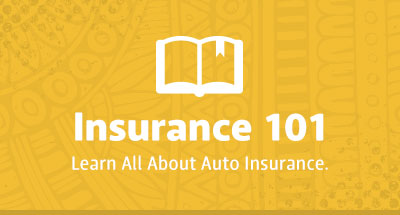When to Buy a New Car Versus a Used Car?
Buy a New or Used Car: How to Decide
If you've been looking to buy a vehicle, you may be wondering which is better long-term: buying a new vs. a used car. Buying a car is a big financial decision, for which you have to consider various factors, including the overall costs, insurance, reliability, and safety.
To help narrow down your choices, we at Illinois Vehicle Insurance Agency, LLC (Illinois Vehicle) gathered the pros and cons of buying a new or second-hand vehicle. Before you go on the road, don’t forget you’ll also need to get car insurance.
If you're looking for affordable coverage, Illinois Vehicle offers various budget-friendly car insurance options. We serve the Chicagoland area and offer non-standard insurance options.
Let’s dive into the pros and cons of new and used vehicles:
Pros and cons of buying a new car
New car pros:
1. The latest tech and safety features: If you're looking for a model with the latest interface, sound systems, or driver-assist features, buying a new car might be the way to go. Newer models have newer tech that keeps drivers safe, such as blind-spot monitoring, lane-keeping assist, automatic emergency braking, etc.
2. Manufacturer warranty: This warranty, which is most likely free, is a great financial safety net against costly repairs caused by faulty parts or manufacturing errors. The manufacturer's warranty usually won't cover repairs needed after accidents, for which you may need a car insurance policy with collision coverage.
3. Lower initial maintenance: New vehicles, which have no history of crashes or repairs, are less likely to have issues. Plus, their non-existent mileage means important car systems such as the engine or transmission haven’t deteriorated.
4. Better financing options: Banks and lenders tend to offer lower interest rates for new vehicles, as they are considered a less risky purchase since they have no previous wear and tear. Additionally, sometimes dealerships will offer incentives on newer cars, such as cash rebates or loyalty programs.
New car cons:
1. Higher price tag: Your wallet will take a bigger initial hit if you buy a new car. If you go with this option, make sure to include other expenses in your budget, such as sales tax, insurance, interest rates, and registration.
2. Rapid depreciation: Cars typically depreciate, meaning they lose value as time passes. A new vehicle can lose 20% of its original value during the first year, according to Kelley Blue Book.
3. Higher insurance premiums: New vehicle owners tend to pay more for car insurance. This is because a new car may need more expensive repairs, cost more to replace if damaged after a crash, or it could be at higher risk of being stolen.
To help offset expensive repairs due to crashes or to have a bigger financial safety net in case your vehicle gets stolen, you may need a full coverage car insurance policy. If you’d like to compare insurance quotes from multiple carriers, contact Illinois Vehicle.
Now, let’s see the benefits and drawbacks of buying a used vehicle:
Pros and cons of buying a used car
Used car pros:
1. Lower upfront cost: Whether you buy it from a dealership or a private seller, a used vehicle will generally cost less than a new one. This is a great option for budget-conscious drivers who don’t mind not having the latest tech.
However, due to pandemic-era disruptions and ongoing tariff effects, used cars may become more expensive, according to Kelly Blue Book.
2. Slower depreciation: New cars experience a big value drop after the first few years, especially after the first year. Depreciation slows down for used cars, which means you may lose less on your investment than if you bought a new car.
3. Lower insurance premiums: A used car often costs less to repair or replace and has fewer expensive high-tech parts. Insurance companies most likely will offer cheaper premiums for used cars compared to new ones.
4. Generally wider selection to choose from: Since you aren’t restricting yourself to the latest model and year, buying a second-hand car lets you shop around for different years, brands, and models.
Source: Kelly Blue Book
Used car cons:
1. Unknown vehicle history: It’s possible that if you buy a pre-owned vehicle from a dealership or a private seller, you may not get all the information concerning previous accidents or repairs. You can always use the car’s VIN (Vehicle Identification Number), a 17-character code often located by the driver’s side windshield or door jamb, to see the car’s details and history.
Additionally, sites such as the National Insurance Crime Bureau let you use a VIN to check whether a car was stolen and never found, or declared a total loss.
2. More frequent repairs and maintenance: It’s also possible that a used car may need more upfront repairs. It may help to hire a professional mechanic to check for any unknown issues before buying a used vehicle.
3. It may lack warranty: A manufacturer’s warranty generally lasts three to five years. Buying an older car means it may lack this warranty. Therefore, used-car shoppers might need to set aside a budget for any needed repairs.
4. Less fuel efficiency: Depending on the make, model, and year, an older vehicle could have less fuel efficiency than a newer model.
Benefits of certified pre-owned vehicles
If you’re looking for a pre-owned car, another option is a CPO (certified pre-owned vehicle). A CPO is a car that has had a thorough inspection and often comes with an additional manufacturer's warranty.
A CPO can bridge the gap between a new and used car when it comes to price and reliability. While a CPO may be more expensive than a non-certified used vehicle, a CPO can give drivers more peace of mind. The professional inspection comes with an extended warranty. CPOs also often come with perks such as free maintenance for a specified time and exchange policies.
Total cost of ownership for second-hand cars vs. new cars
To better understand what you’ll be paying for a new vs. a pre-owned vehicle in the long term, compare the purchase price, financing, taxes, registration, repairs, and insurance over 5 years.
How insurance plays a role in your decision
If you know the year, model, and make of the cars you are comparing, an insurance agency can give you a quote for the new and used vehicles. As mentioned above, car insurance premiums tend to be pricier for newer vehicles. If you finance your car, you may be required to get a full insurance policy by the lender. Additionally, some used cars only qualify for liability insurance. Therefore, you should budget for possible repairs when purchasing a used vehicle.
Drivers with an SR-22 requirement or “high-risk drivers” (those with infractions in their driving records, inexperienced drivers, drivers with low credit, or with lapses in their insurance) may benefit more from a lower-cost vehicle. There is less financial risk since a used car often has more affordable premiums, and because you will face fewer financial losses in case of an accident.
Final checklist: How to decide
Before making a final decision between a new or used vehicle, consider these important points:
- Your budget, including other expenses like insurance and repairs
- Your long-term plans and whether you need to budget for other home expenses
- Insurance rates
- The vehicle’s maintenance costs and reliability
- Safety features, in case you prefer more peace of mind with driver-assist technologies
Whether you choose a second-hand car or a brand-new model, make sure you have the proper insurance coverage. Illinois Vehicle offers options for your non-standard or high-risk needs. Visit one of our 43 Chicagoland locations, call an agent at 630-581-4805, or get a free car insurance quote online.
Disclaimer:
This material is for general informational purposes only. The products, services, and discounts referenced herein are not available in all states or from all companies. All statements are subject to the terms, exclusions, and conditions of the applicable policy. In all cases, the actual language of the policy contract prevails. Coverage is subject to individual policyholders meeting the insurer's underwriting qualifications and state availability. Other terms, conditions, and exclusions may apply.






